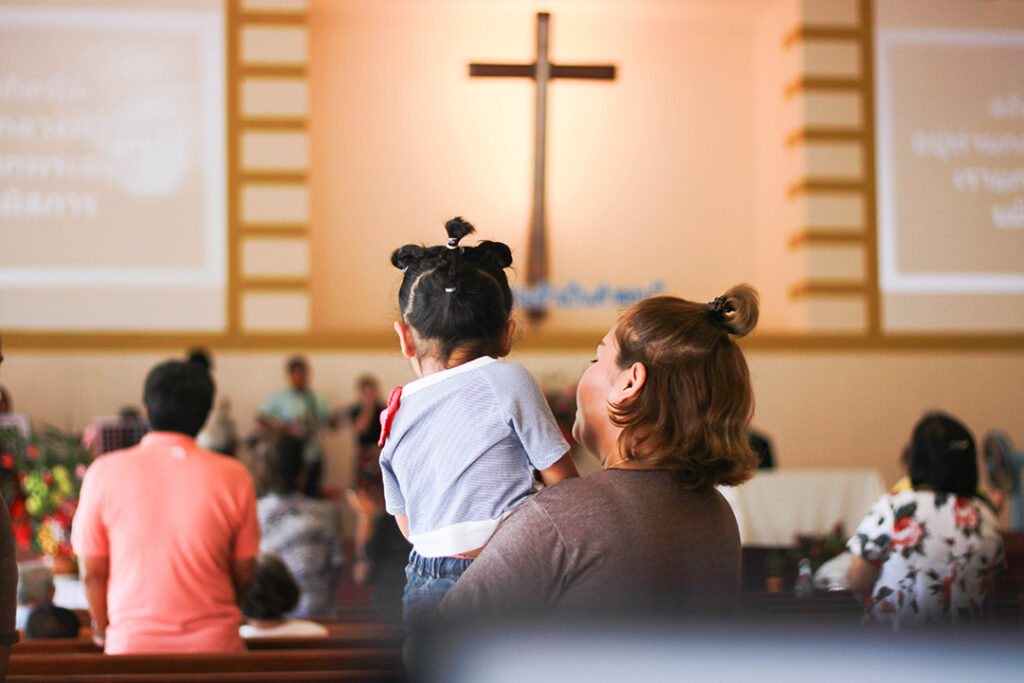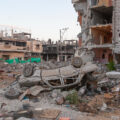Reckoning with shadows: The Roman Catholic Church’s struggle with the child abuse crisis
Reckoning with shadows: The Roman Catholic Church’s struggle with the child abuse crisis
Our analyst Muhammad Faisal Khalil looks at recent developments in the Roman Catholic Church’s deep-rooted crisis of child abuse.
This weekly comment was written by Muhammad Faisal Khalil and reflects his personal analyses and opinions, rather than those of EARS.
The Roman Catholic Church, traditionally regarded as an upholder of moral values and a defender of the innocent, faced a significant and complex challenge in the year 2023. As it prepares for the inaugural World Children’s Day in 2024, symbolising care and concern for the young, the Church is simultaneously contending with a deep-rooted crisis of child abuse within its own institutions. This situation presents a critical challenge to the Church’s moral authority and the trust placed in it.
World Children’s Day
In 2023, Pope Francis announced the Church’s first-ever World Day of Children in May 2024.[1] This initiative was promoted by the Dicastery for Culture and Education and inspired by a proposal from a 9-year-old boy, Alessandro. Pope Francis approved of this idea: “I like it very much! We can have it organised by the grandparents. A beautiful idea. I will think about it and see how to do it.” For the pope, this event represents the Church’s commitment to the welfare of children: “Like Jesus, we want to put children first and care for them.”[2] The announcement, however, when examined in light of the longstanding child abuse scandal within the Church, prompts critical examination of its dedication to child protection and welfare.
The escalating scandal
The latter part of 2023 witnessed an increase in abuse allegations within the Church, catalysed by the release of the Belgian documentary Godvergeten (‘Godforsaken’). Godvergeten, for example, prompted Belgium’s Supreme Court of Justice to conduct a special investigation into Operation Kelk. Operation Kelk, initiated in Belgium in 2010 and led by Investigating Judge Wim De Troij, was an investigative effort to uncover the potential complicity of the Belgian Catholic Church’s leadership in concealing child abuse. Belgium’s Supreme Court aimed to assess the effectiveness, fairness, and thoroughness of Operation Kelk, particularly in light of the federal prosecutor’s office’s recent denial of Church influence and the growing public demand for justice.[3]
Adding to this investigation, the parliamentary inquiry committee in the Belgian Parliament in November 2023, offered another stage to scrutinise the Church. Survivors like Luc Van de Cauter and Staf Van Pelt shared their harrowing experiences, revealing the severe psychological and familial toll of prolonged abuse. Van de Cauter’s testimony, which spoke of the lasting damage on his family, including his daughter’s suicide attempt, brought a deeply human face to the statistics. Similarly, Van Pelt, who criticised the paltry sum of 4,500 euros as compensation, describing it as “hush money,” highlighted the inadequacy of the Church’s response. These personal stories, along with expert insights from child psychiatrist Peter Adriaenssens, who advocated for a more substantial compensation scheme, emphasised the need for a more empathetic and robust response from both the Church and legal systems.[4]
The recent developments in Belgium create a stark contrast between the Church’s proclaimed moral values and its actual handling of these grave matters, and are reminiscent of systemic failures identified earlier in the French Catholic Church. In 2021, an independent commission in France made a harrowing disclosure: between 1950 and the time of the report, an estimated 2,900 to 3,200 individuals, including priests and other Church personnel, were involved in paedophilic activities.[5] This extensive investigation revealed not just the horrifying scale of the abuse but also its entrenched, long-term nature within the Church’s structure. Such findings from France, alongside events in Belgium, paint a picture of a deep-rooted crisis that requires more than just superficial responses from the Church’s leadership.
The Church vs. the victims
In a bid to address the mounting controversy, Pope Francis announced a visit to Belgium in 2024.[6] This was met with scepticism by both victims and their advocates. Reacting to the pope’s announcement, one of the victims Linda Opdebeeck said, “We assume that it is a strategy to distract people’s minds from the abuse.” Priest Rik Devillé criticised the visit as “food for cartoonists,” highlighting its insensitivity amidst the crisis. The legal representative for the victims, Walter Van Steenbrugge, also stressed the necessity for substantive action rather than symbolic gestures: “The victims have no use for words. They need concrete actions and proposals to compensate for the great suffering they have endured.”
Victims of abuse, therefore, continue to express their discontent and insist on substantial change. Their demands for concrete measures, such as official apologies and the creation of a recovery fund, only highlight the significant disconnect between the Church’s public endeavours and the critical need for authentic internal reform. Opdebeeck’s poignant question, “The pope has never done anything for us. So what is he going to do here? We want the Church to do its duty,”[7] reveals this gap between the Church’s actions and the victims’ needs.
Symbolic gestures vs. substantive actions
The close of 2023 saw the Roman Catholic Church at a crucial juncture, confronted with the task of reconciling its public commitments to moral good, such as the World Children’s Day, with the imperative to address the unresolved child abuse scandal. The Church can begin to reconcile its proclaimed values with its actions only by undertaking consistent and concrete measures to address the abuse crisis. This may help restore the now-broken faith and trust of many of its followers and the global community.
This weekly comment was written by Muhammad Faisal Khalil and reflects his personal analyses and opinions, rather than those of EARS.
Interested in similar topics? Go to our Dashboard.
Sources
[1] Paus kondigt eerste Wereldkinderendag aan | Kerknet
[2] Pope Francis announces first World Day of Children – Vatican News
[3] Hoge Raad voor Justitie gaat na of er fouten zijn gemaakt bij Operatie Kelk: “Verloop van onderzoek roept vragen op” | VRT NWS
[4] Aangrijpende getuigenissen in parlement over seksueel misbruik in Kerk: “Dat de Kerk boven de wet staat, tart alle verbeelding” | VRT NWS
[5] Thousands of paedophiles active in French Catholic Church since 1950, commission finds
[6] Pope Francis to visit Belgium next year | VRT NWS: news.
[7] Slachtoffers seksueel misbruik verbolgen over aankondiging bezoek paus, advocaat: “Ze hebben geen boodschap aan een showbezoek” | VRT NWS






